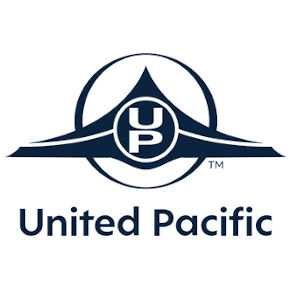The Impact of the 1980 Motor Carrier Act on the Truck Industry
Whenever we think of blue-collar occupations that have declined in status, salary, and working conditions, we usually blame technology or labor outsourcing to other countries.
Trucking remains resilient to outsourcing. Also, self-driving innovation is yet to replace any driver. Nonetheless, its income, status, and working conditions have declined recently.
President Jimmy Carter enacted the Motor Carrier Act (MCA) in 1980, deregulating the business and transforming truckers into independent contractors. Most drivers now own their vehicles and are employed by trucking firms, which are employed by enterprises that ship via a port. Drivers are in charge of upkeep, route planning, and parking cost.
On the contrary, the industry's large carriers who have profited from the restrictions' protection quickly criticized the deregulation initiative. President Jimmy Carter said the reform would save consumers more money upon signing the 1980 Motor Carrier Act. Although deregulation reduced inflation, truck drivers suffered as a result. Drivers in the late 1970s received incomes comparable to those in the six figures; most of them were unionized.
According to the Bureau of Labor Statistics (BLS), the annual wage for the 1.9 million truck drivers is $48,310. According to today's drivers, it was a decent life in a golden period, an era many claims ended on July 1, 1980, when President Jimmy Carter signed the Motor Carrier Act of 1980, which deregulated the trucking sector.
Beginning in 1935, the federal government established the cost of transporting an item from one place to another. Trucking businesses had to apply for the privilege to transport a certain item, making it difficult for individuals even to become truck drivers. The 1980 MCA dismantled that system, letting anybody carry any commodity to any location for any fee.
In signing the act, Carter hoped it would prevent „excessive and inflationary government restrictions and red tape". The idea was to reduce the price of commodities by pushing truckers to compete on transportation costs. According to Carter, it may save customers up to $8 billion yearly, or $25 billion in the 2020 exchange rate. And he was accurate. But another of his promises, „All the citizens of our Nation will benefit from this legislation," is a little dicier since Carter's act also destroyed one of America's most important blue-collar professions.
However, the act did not mention the major beneficiaries of the 1980 MCA in Carter's signing statement, maybe because neither the president nor anybody else predicted them. National and multinational retail chains have risen to market domination in recent decades.
According to experts, today's big-box and e-Commerce businesses would not emerge if the government had not relinquished control over freight pricing. Americans would certainly have fewer items, and those goods would be more costly if deregulation hadn't allowed e-Commerce businesses to rationalize their supply chains so aggressively.
Effect of President Jimmy Carter’s 1980 MCA on the Truck Industry
Though there was a ripple effect to the announcement of the MCA by President Jimmy Carter, although a protest followed immediately after the announcement, below are some aftermaths of the 1980 Act.
1. It Led to the Bankruptcy of the Truck Industry
Consolidated Freightways went bankrupt in 2002, as did every other trucking company of the 20th century that couldn't compete in a deregulated business.
Most didn't survive even half that long. Some freight carriers went out of business in the three years after deregulation. These businesses contributed to the overall income of the industry. Thousands of transportation firms have gone out of business by 1986.
2. Slash in Truck Driver’s Earnings
There were replacements by tiny startups, and the number of transportation businesses more than quadrupled between 1980 and 1990.
Drivers' earnings suffered; the trucking businesses were compelled to cut payrolls to compete with new industry entrants. The trucking sector is a unique segment of the American economic landscape in that almost anybody may become a company owner.
3. High Competitions
When the government controlled the industry, salaries were reasonable, profits were excellent, and transportation costs were reasonable.
Thousands of profitable trucking firms went bankrupt due to deregulation, while thousands more replaced them. Thousands of others who entered the industry were forced to reduce costs wherever possible by mostly taking profits away from their employees, often small firms whose trucks were owned and run by drivers ready to put in long hours for little pay and heavy debt on their rigs, and Truckers began having to compete for business by hiring non-union workers willing to accept low pay.
4. The Decline of Blue-Collar Job
The 1980 MCA also abolished regulations that made it hard for businesses to export products on a large scale. Companies may now transport anything they want on whatever route they choose, and since labor is cheaper, they can truck massive volumes of products from shipping ports receiving commodities from anywhere to distribution centers or retailers.
As a result, large box retailers like e-commerce businesses have flourished; the people who pushed for the MCA in 1980 were accurate: trucking has become more competitive, and the savings in transportation costs have been transferred on to the consumer in part. However, there is a greater implication that they did not anticipate: the decline of blue-collar jobs.
Why Was Deregulation Beneficial for Some E-commerce?
It's simple to forget that getting every imagined good anywhere wasn't always feasible. However, before transportation deregulation in 1980 and the subsequent globalization of supply chains, a national store would have struggled to get items on the shelves. That is why, throughout the mid-twentieth century, certain now-bankrupt prominent stores stationed their distribution operations near America's rails. Some catalogs, which first appeared in American mailboxes in 1893, were hundreds of pages long and took weeks to arrive at a customer's door. Rail was extremely slow, but carrying a large range of commodities by truck was too difficult.
A trucking business had to request permission to transport a certain item from one city to another. If that setup remained in place today, most e-Commerce business strategies of delivering thousands of goods by truck across the nation would be impossible.
Conclusion
Those drivers were, as it turned out, justified in their objections. The MCA of 1980 aided in the collapse of their salaries and working conditions by creating an extremely competitive environment in which enterprises could only survive by slashing pay to the bone.
Free-market advocates say that unrestricted competition produces significant savings for shippers and consumers. However, the majority of the savings were collected by shippers and manufacturers. And the savings, some of which were attributed to enhanced efficiency as a result of intense rivalry, seem to have come mostly from the purses of hundreds of thousands of employees who formerly earned fair pay.
The free market may work in certain industries, but it has failed in others, such as trucking.
Statement of President Jimmy Carter Signing the S. 2245 Motor Carrier Act of 1980 Into Law.
“I have today signed into law S. 2245, the Motor Carrier Act of 1980. This is historic legislation. It will remove 45 years of excessive and inflationary Government restrictions and redtape. It will have a powerful anti-inflationary effect, reducing consumer costs by as much as $8 billion each year. And by ending wasteful practices, it will conserve annually hundreds of millions of gallons of precious fuel.
All the citizens of our Nation will benefit from this legislation. Consumers will benefit, because almost every product we purchase has been shipped by truck, and outmoded regulations have inflated the prices that each one of us must pay. The shippers who use trucking will benefit as new service and price options appear. Labor will benefit from increased job opportunities. And the trucking industry itself will benefit from greater flexibility and new opportunities for innovation.
The heart of the Motor Carrier Act of 1980 is its call for prompt and sweeping change of the regulations that have insulated the trucking industry from competition since 1935. No longer will trucks travel empty because of rules absurdly limiting the kinds of goods a truck may carry. No longer will trucks be forced to travel hundreds of miles out of their way for no reason or prohibited senselessly from stopping to pick up and deliver goods at points along their routes.
The Motor Carrier Act of 1980 will bring the trucking industry into the free enterprise system, where it belongs. It will create a strong presumption in favor of entry by new truckers and expanded service by existing firms. It will build upon progress the Interstate Commerce Commission has begun to make in opening opportunities for minorities, for women, and for all truckers who are eager to provide good service at a competitive price.
It will phase out most of the antitrust immunity that has allowed rate bureaus to fix prices. It will eliminate redtape and encourage price competition by allowing trucking companies to price their goods within a zone of reasonableness not subject to ICC review, and it immediately ends antitrust immunity for all rates set through that zone. The premise of the rate-zone provision is that increased competition between truckers will prevent abuses of this pricing freedom. I expect the ICC to implement this legislation effectively and promptly to ensure the vigorous competition needed to make greater pricing freedom work in the interest of shippers and consumers.
The bill broadens the list of agricultural commodities that are completely exempt from regulation and provides greatly eased entry with an absolute minimum of redtape for independent owner-operators who carry processed food. While not as broad as the complete exemption for processed food we had proposed, this provision is still an important procompetitive force in helping to hold down the price of food.
I am also particularly pleased that the bill will improve truck service to small communities and enhance business opportunities for independent truckers.
In brief, the purpose of the legislation is clear. Protective and wasteful regulations are to be replaced wherever possible by competition and the discipline of the free market. These changes will work to the benefit of all consumers.
The Motor Carrier Act of 1980 is important in its own right. It should also be seen in context, as a key part of this administration's sweeping program of regulatory reform. We have done far more than any other administration in history to eliminate excessive or outmoded regulation and to manage more productively the regulations that remain essential.
We fought successfully for domestic and international airline deregulation. As a result, the Civil Aeronautics Board estimates that air travelers saved $2.8 billion in 1978 alone and that the productivity increases that produced those reductions continued throughout 1979, for overall savings in excess of $5 billion. I proposed and have now signed into law reform legislation to remove regulatory barriers that for years prevented more competition and better service in the banking industry. I proposed and Congress is nearing final passage of legislation to remove archaic and superfluous regulation of the railroads.
Where regulations cannot be eliminated, we have established a program to reform the way they are produced and reviewed. By Executive order, we have established a requirement that regulators carefully and publicly analyze the costs of major proposals, which had never been done before. We have required that interested members of the public be given greater opportunity to participate in the regulatory process. We have established a sunset review program for all major new regulations. We have cut Federal paperwork by 15 percent and will cut it further. And we are making real progress in eliminating inconsistent regulations and developing and encouraging innovative regulatory techniques—techniques that are already saving hundreds of millions of dollars while still meeting important statutory goals.
Our comprehensive program of regulatory reform is a major accomplishment, and the trucking bill ranks high among its elements. A year ago, when I proposed trucking reform legislation, many people said that real trucking reform could not be accomplished. That I am signing this bill into law only 1 year later is a tremendous credit to all who worked with me to achieve reform.
I am deeply grateful to those key Members of Congress who worked tirelessly for this legislation. Senate Commerce Committee Chairman Howard Cannon and Senator Bob Packwood exercised superb leadership in developing a comprehensive record of the need to change the present system and in consistently pressing for expeditious reform. Senator Kennedy has been a steady and important supporter of trucking reform and helped to shape our original joint proposal. In the House, the crucial efforts on this proconsumer legislation were made by Public Works and Transportation Committee Chairman Bizz Johnson, Subcommittee Chairman Jim Howard, Chairman Peter Rodino of the Judiciary Committee, Congressman Bill Harsha, and Congressman Bud Shuster.
Tremendous credit is also due to the large number of people outside the Congress, representing consumers, businesses of all sizes, farmers, independent and regulated truckers, and others interested in working toward genuine reform.
Finally, I want to commend Chairman Gaskins and the members of the Interstate Commerce Commission for their support and encouragement of this reform effort. I know I can count on the Commission to take prompt and effective action to bring to the public the benefits of greater competition, greater productivity, and lower prices that this law will provide.”
As adopted, S. 2245 is Public Law 96296, passed on July 1, 1980.
Link to the 1980 Motor Carrier Act Law









